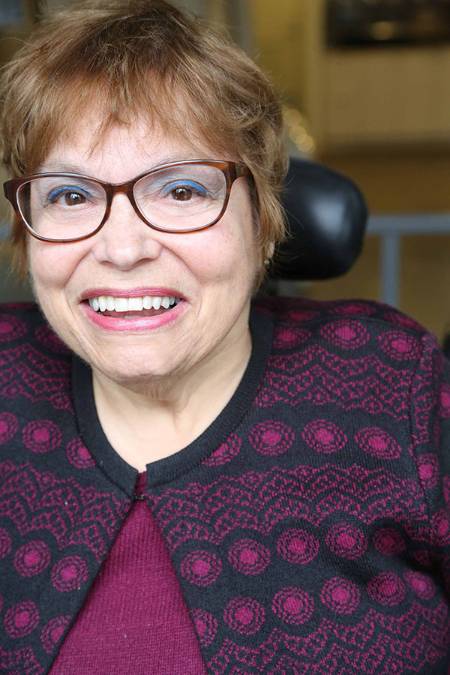Women's History Month: An Interview With Judith Heumann

Judy Heumann changed history from her wheelchair, becoming a powerful voice in the disability rights movement. She’s a prominent figure in Crip Camp, a documentary that won the Audience Award at the Sundance Film Festival and is now showing on Netflix.
She sat down with us for a Zoom interview earlier this week, in honor of Women’s History Month.
Heumann fought a lot of battles, faced down the attitudes of the day and changed policies. When she decided to sue New York City’s board of education after she was refused a teaching license in 1970, she had the support of family and friends.
At the time teachers were expected to pass three tests: written, oral and medical. “There was no requirement at that time that the test be offered in accessible buildings,” she said. “I had a really terrible medical examiner who was really phobic about people with disabilities.” The examiner failed her because she was a “fire hazard.”
It wasn’t the first time she’d been denied because she could not move herself out of an inaccessible building if there was a fire. She was also barred from school as a child. Eventually she was permitted to go to a special education class, where she and her classmates were treated as second-class students.
This time, she talked with friends and family about fighting back. “It was going to put me in a vulnerable position, and I needed to make sure I was able to handle what would happen,” she said.
She also needed to find a lawyer who would take her case on for free because she didn’t have money to pay them. She received a phone call from Roy Lucas, a lawyer who was writing a book on civil rights, and asked him to represent her. Two other lawyers volunteered as well.
“We went to court. We had the first African-American female judge appointed to the federal court, and she told the board of education that she encouraged them to give me another medical exam. And they did and I was given a license,” she said.
She taught at PS 219, the same school she’d attended as a child. She founded Disability in Action, an activist group. She worked for a senator from 1974-75, where she helped form the policy that became the Education for all Handicapped Children law (it’s now called Individuals with Disabilities Education Act).
And in 1977, making a landmark moment in the disability rights movement, she led a successful sit-in at the San Francisco office of the U.S. Health, Education and Welfare that lasted nearly four weeks. Other sit-ins and protests were staged by activists demanding that Section 504—part of the 1973 Rehabilitation Act that required access for people with disabilities by entities that used federal money—be signed by HEW Secretary Joseph Califano. The section had gone unenforced for years because it was deemed too expensive. It would have required changes in hospitals, universities, schools and government buildings.
Protesters remained in the federal building despite mounting pressure to leave. Local reporters largely ignored the demonstration. Judith left to take the protest to Washington, DC, but many other activists remained. “We were more scared of disappointing Judy Heumann than the FBI or the police,” a demonstrator recalled in Crip Camp.
It was a fight to change policies and long-standing attitudes. It lasted for weeks. But it was not lonely. “There were a lot of us there and we were giving each other support. … I didn’t feel alone at all,” Heumann said.
During the protest she was among friends, many of whom had attended Camp Jened when she was there. The Crip Camp documentary shows how the camp experience brought the attendees together and helped them gain confidence.
She did feel loneliness at different times. She later worked in the Clinton and Obama administrations, in organizations with few people with disabilities. It was a situation women with and without disabilities—or anyone who feels different—could understand. “Being one of the only women in an agency, you feel lonely or not understood or like you’re being viewed all the time. But I liked the job. It was a wonderful job."
And she confronted sexism. “Disabled women were experiencing discrimination within the community. Women were expected to do some things and not others. … The Centers for Independent Living had its first female chairperson after women put up an insurrection. "
When asked what advice she had for young advocates, she immediately broadened the question. “Younger people can teach older people, and older people can teach younger. As disabled women we need to believe that we can make a difference, and that it’s important that we respect ourselves, and that we have friends who are disabled and nondisabled who give support. … Sometimes being able to speak to another woman with a disability can help give you perspective and help you move forward.
“As women, many of us want to make the world a better place.”
For a more complete picture of Judith Heumann and her fellow advocates, watch Crip Camp. The documentary offers a frank, sometimes funny, always unblinking window into the camp and the self-confident leaders it inspired. “It’s an excellent documentary that focuses on a period of time in the disability movement,” Heumann said. “It was very interesting to watch me when I was 21.”

